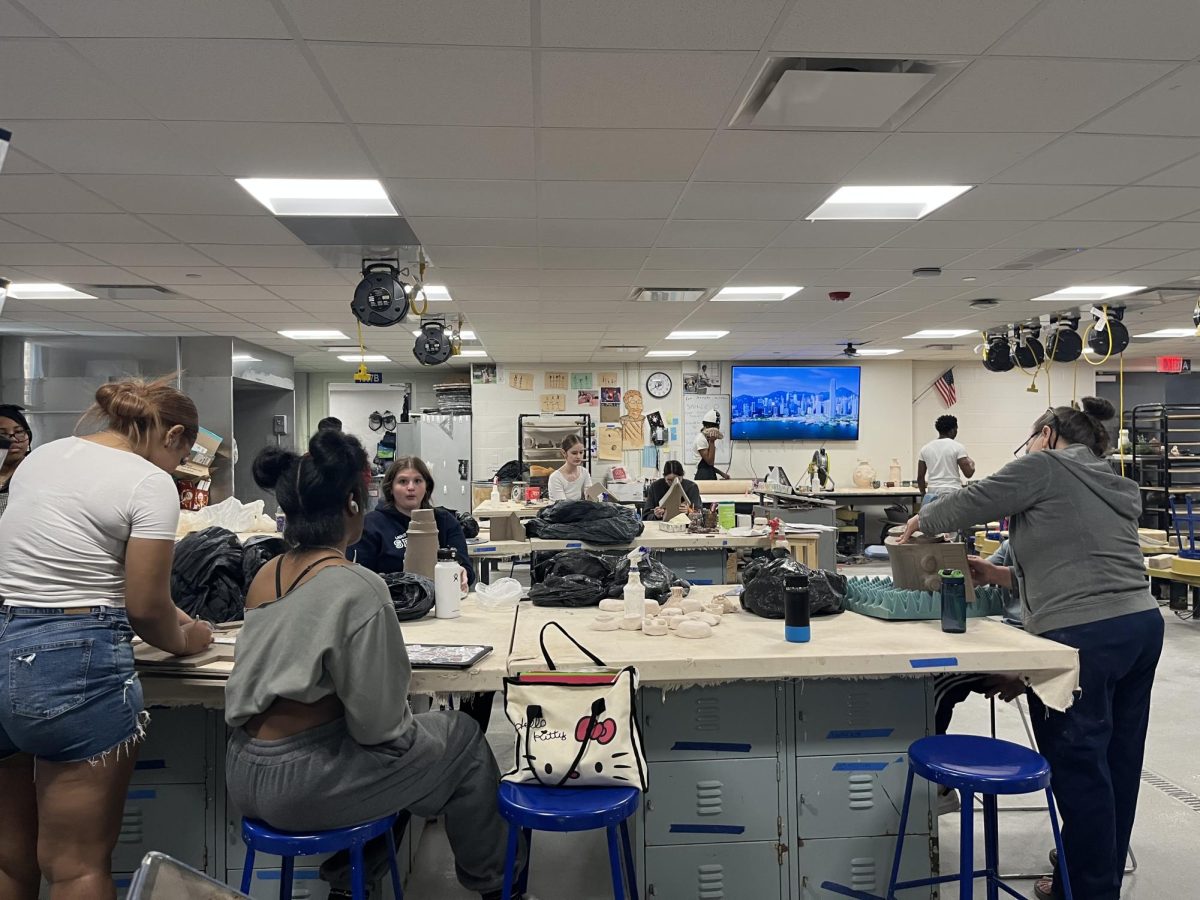On Monday, October 22 during seminar, seniors went through CPR training at the West Balcony. CPR training is now a graduation requirement for public high schools in the state of Missouri through Senate Bill 711 signed on June 14, 2016, and has been implemented since the 2017-2018 school year.
The 30-minute training will be incorporated into the existing health and physical education curriculum this year, but because the class of 2019 have already completed their required health credits, they were required to either dedicate time in seminar to complete this training or show proof of certification to Coach Corey Miller, Coach Kevin Clawson or to Director of Activities Nick Gianino.
“I think [the Missouri government] recognized the need [for CPR training because] it can save a life, [so] they decided to add it into the curriculum and make it a graduation [requirement,]” Gianino said. “Everyone has a heartbeat, so we want everybody to have some knowledge to be able to help people and save a life in need.”
39 states have made CPR training a requirement for high school graduation, and Missouri is now the 34th. Through the StudentCPR program, over 30,000 students across the country have become certified. The signing of bills mandating CPR training show that states feel the ability to give CPR is becoming an increasingly important skill.
According to the American Heart Association, the survival rate for when cardiac arrest occurs outside of a hospital setting ranges from 2% to 15% unless CPR is properly performed, which will then double or triple the survival rate for those patients. However, the majority of out-of-hospital cardiac arrests occurs at public settings, causing survival rates to fall and necessitating that the average student knows how to administrator a crucial process to save a life.
“We do this because we believe in saving lives,” American Red Cross logistics coordinator Evie White said to the Missourian newspaper in Columbia, Missouria. “The more people trained in our communities, the more quickly [Emergency Medical Services] can get there and provide advanced medical care. The quicker someone responds, the better it is for our entire community.”









